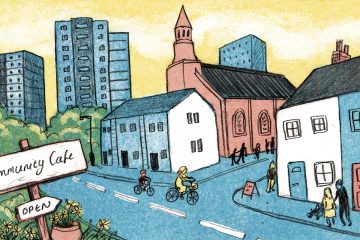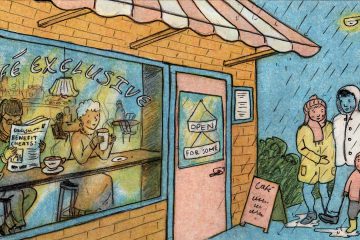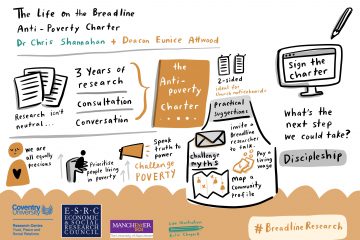Life on the Breadline lead researcher, Chris Shannahan, reflects on transforming structural injustice ahead of the workshop on this theme on 13th September 2019.
Dietrich Bonhoeffer famously suggested that, ‘The Church is not simply called to bandage up the wounds of victims beneath the wheels of injustice but to drive a spoke into the wheel itself.’ In our 3 year ESRC funded ‘Life on the Breadline’ project we are asking ourselves whether Christian action on poverty during the ‘age of austerity’ is bandaging up its victims’ wounds or moving beyond this to challenge structural injustice and drive a spoke into the wheel of unjust structures and systems. The Church is better placed than almost any other institution to challenge grassroots poverty in a coherent and sustained way because it is deeply rooted in local neighbourhoods across the UK. What does the Church do with this power?
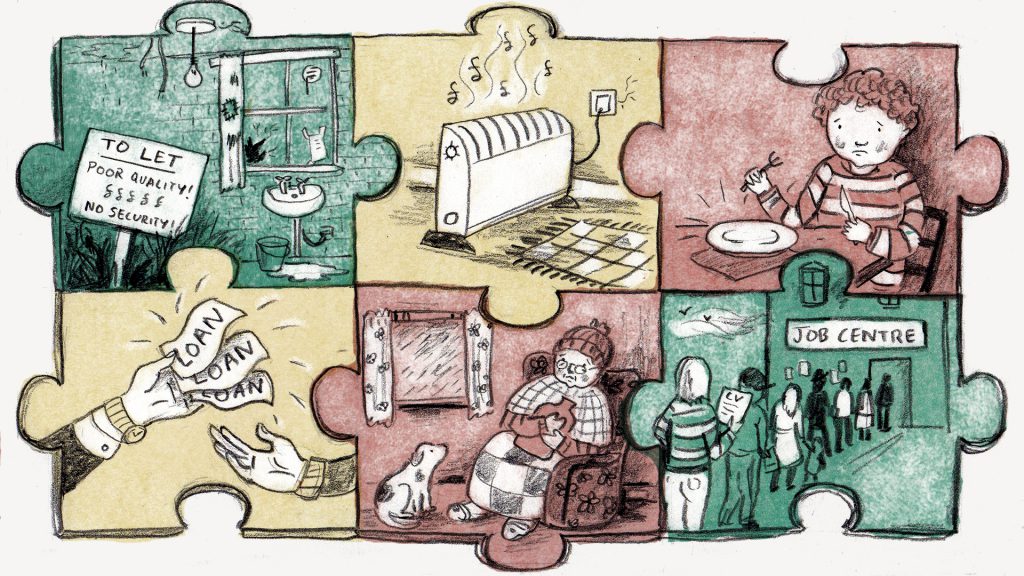
After ten years of austerity our ‘Life on the Breadline’ team are exploring Christian responses to poverty through a survey of regional church leaders across the UK, interviews with national church leaders and six in-depth case studies in Birmingham, London and Manchester. Ours is the first theological project to explore Christian action on poverty since the global financial crash. We want our research to make a difference. Martin Luther King compared poverty to an octopus – one beast with many slippery tentacles. Our case studies demonstrate that poverty comes in all shapes and sizes – food poverty, low pay, insecure zero-hours work, poor housing, homelessness, holiday hunger, fuel poverty and rising levels of debt. Like a perfect storm these different aspects of poverty, when combined with a failing Universal Credit system and a culture that blames people living in poverty for being poor, come crashing down on our heads like some inescapable wave.
The Church meets the immediate needs of many thousands of people who are living in poverty….but is caring alone enough? For more than twenty years our project partner Church Action on Poverty has been engaged in the battle to defeat poverty. Its work moves beyond caring to raise awareness about social exclusion in churches across the UK. Church Action challenges unjust government policy and business practice, addressing the root causes of poverty and works with other to try to build a ‘Church of the Poor’.
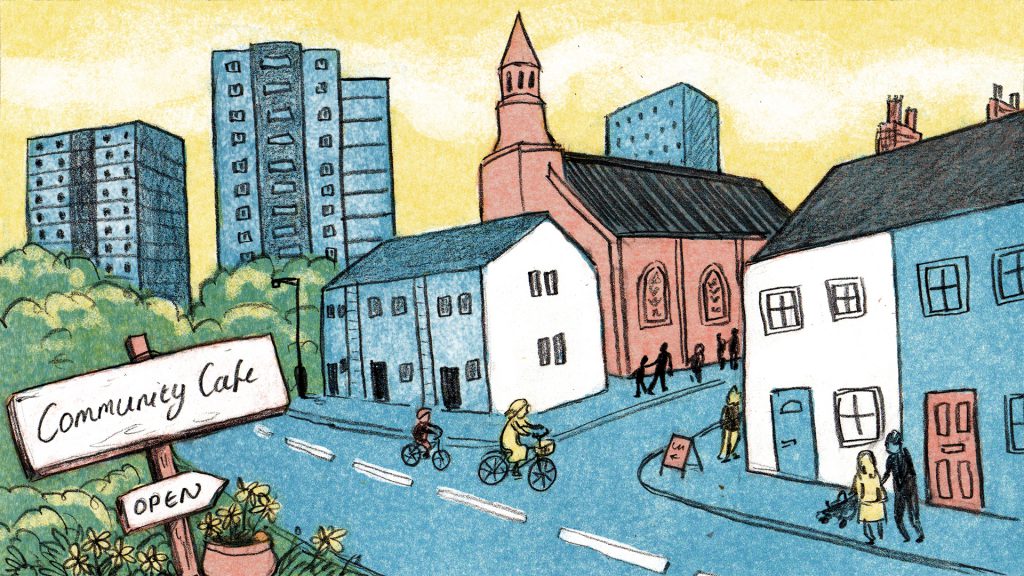
First articulated in 1984 the ‘Marks of Mission’ summarise the calling of the Church. Adopted by a wide range of denominations, this checklist is intended to guide Christian mission. The fourth of these marks is to ‘challenge unjust structures’ within society. In spite of the vast amount of work they do churches are perhaps less keen to challenge the structures and the systems that give rise to poverty. Together with Church Action on Poverty the Life on the Breadline team want to do something about this….
We are hosting a participatory one-day workshop entitled ‘Transforming Structural Injustice’ on 13th September at the Centre for Trust, Peace and Social Relations at Coventry University to explore some of the ways in which the Church can live up to its calling to tackle the root causes of poverty and build a just society. An exciting range of speakers – some activists and some academics – will stimulate our small group conversations and help us to begin to identify ways in which we can begin to transform structural injustice in breadline Britain. It would be great if you could join us and be part of the conversation. Together we can make a difference!
This piece was originally posted on the Church Action on Poverty blog
